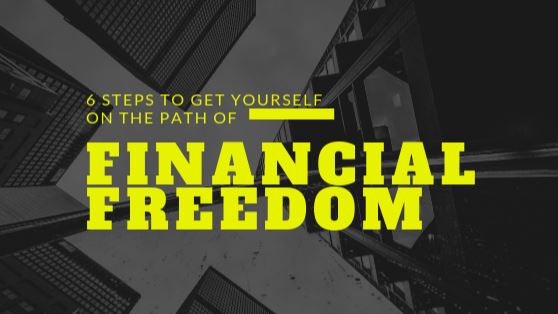“Debt is like any other trap, easy enough to get into, but hard enough to get out of.”- Josh Billings
We all want to borrow money but none of us want to repay it. Sometimes, repayment can cause a great deal of stress, anxiety, and frustration. You might think that getting out of financial debt is really difficult, and yes, to a certain extent it is, but it is not impossible. In fact, the procedure is easy if followed properly. Let’s find out how straightforward it can be to get out of debt.
 List it out
List it out
The first thing you must do to free yourself from the jail of borrowed money is to make a list of all your debts. It will include everything, such as student loans, car loans, money owned to family and friends, credit card debt, etc. You should also note down their respective interest rates in a corresponding column in descending order, i.e., the highest rate at the top and the lowest at the bottom.
Financial advisers say that we should focus more on the debts that cost us the most. How you prioritize your list of debts is up to you. However, you must make that list. Then add them all up. The total figure might come as a bit of a shock, but at least you now know where you stand.
Fix a Budget
Now that you know how much you owe, you need to work out how you will pay it back. Look at all your monthly expenses and place them in order of importance, For example, your electricity bill matters more than a night out in the town with friends.
When you have completed the list, try to make a shortlist of items that you do not really need. Then work out how much you would save each month if you did not buy them. Most people are surprised at how much they spend on impulse or luxury items that they could easily live without.
The amount you think you could save by being more careful with your spending you can now use towards reducing our debts.
Keep aside an emergency fund
Having some money aside is not only a good idea because you would be ready in case of emergency. It is also much cheaper than having no emergency fund at all.
If you don’t have an emergency fund and something unexpected happens which requires immediate payment, you will have to borrow. If you borrow using your credit card, for example, and don’t pay back by a certain date, high interest rates will increase the size of that debt rapidly. With a rainy day fund, you won’t need to borrow if an emergency happens.
Such a fund could total one, two, or three months’ salary. How much depends on the amount you can afford. Keep adding to it every year. The bigger it gets, the less you need to add each time.
It is time to get started
Once you are through with the first three-pointers, it is now time to schedule your repayments. Remember the list you made, focus on the first entry and scratch it off. Some people break down and divide the money into all the debts. That might not be the best solution Focusing on one debt at a time will help you build momentum. Once you are done with the first, move on to the second, and carry on.
Don’t forget to read and understand the repayment policies of all your debts to ensure effective and efficient payments. If you get any call from any international debt collection agency, do talk to them. Avoiding calls is never a solution. A debt is a financial obligation that you are responsible for. You need to assume that responsibility properly. If you can’t pay enough this month, call your creditors and try to come to a mutual arrangement.
Sticking through the process
As you pay off more creditors and move further down the list, there is a risk of you losing interest or motivation. However, it is important to persevere until that list no longer exists. When you made that list, it was your first step towards financial freedom. What’s the point of stopping half way?
Set yourself mini goals and give yourself a little treat every time you reach them Do whatever you have to to keep yourself motivated.
Commit to staying debt-free
When you have reached the end of the list and it no longer exists, you have entered the world of financial freedom. You no longer have to worry about people writing letters, telephoning, or knocking on your door.
Use the financial discipline you have acquired as a way of life. Keep that discipline going. If you manage to keep it going, you will probably never have to borrow again. If you do borrow, at least you will have the skills to pay it back on time.

